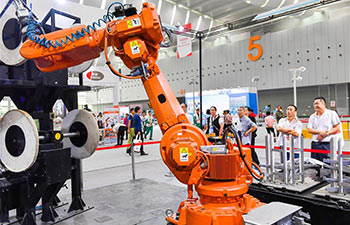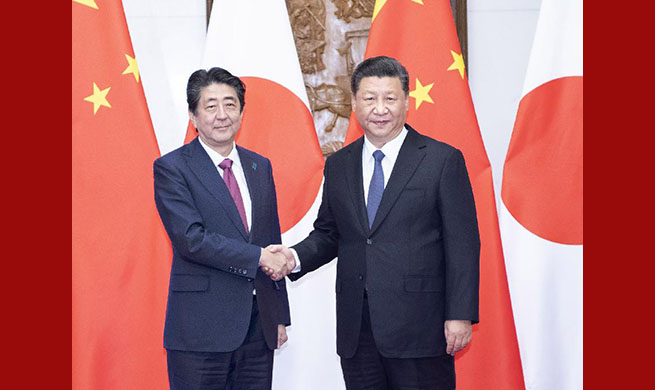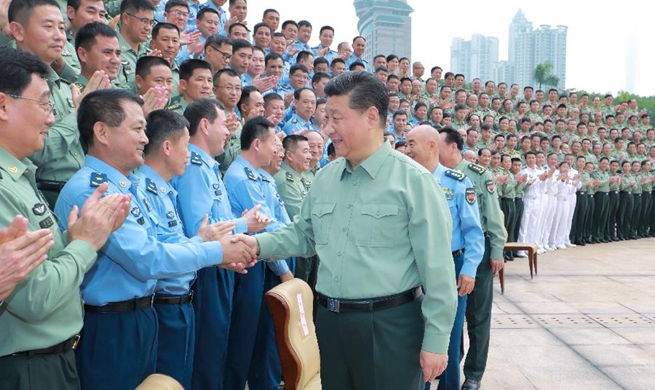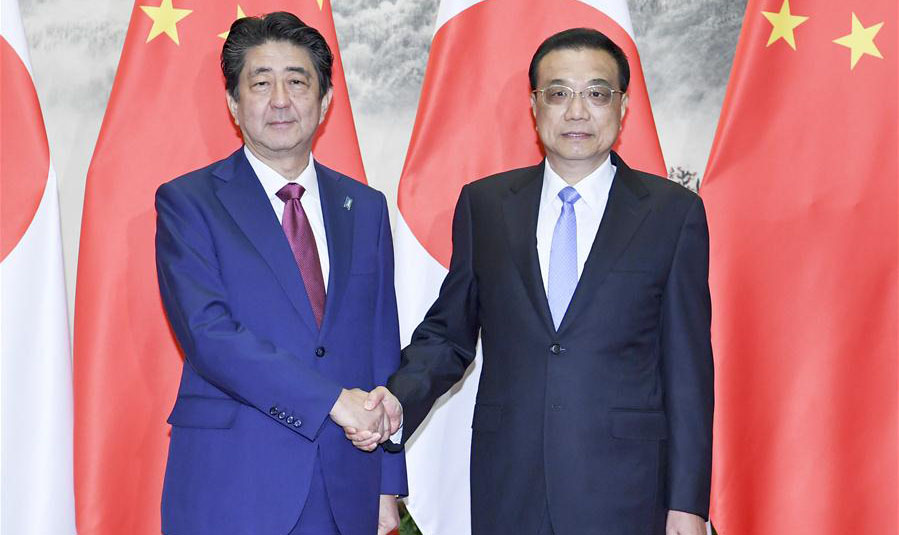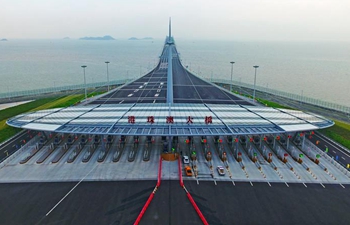ISTANBUL, Oct. 27 (Xinhua) -- As Turkey prepares to host a summit on Syria on Saturday, analysts are not hopeful that the assembly of Russian, Turkish, German and French leaders will pave the way for major progress toward a political settlement of the conflict in the Arab country.
"The quadripartite summit should not be expected to produce any concrete results," Cahit Armagan Dilek, head of the Ankara-based think tank 21st Century Turkey Institute, told Xinhua.
This meeting has lost much of its meaning after Ankara and Moscow reached a deal on Idlib, the last major stronghold for Islamist rebels in Syria, said Dilek, who is also a former staff officer in the Turkish military.
In mid-September, Turkish President Recep Tayyip Erdogan and his Russian counterpart Vladimir Putin concluded a deal on a political settlement in Idlib.
Idlib has been a major concern for Ankara as it fears a Syrian army offensive against the rebels could send flocks of refugees toward its borders.
Some of the so-called moderate rebel groups in Idlib have the backing of Turkey, which argues that they should be part of the peace efforts and have a place in Syria's future.
"I don't expect a big result to come out of the summit," Hasan Koni, an international relations analyst, said, explaining that countries which have much say on the Syrian issue such as the United States, Iran and Israel, are not included in the summit.
The United States has a major military presence in areas under Kurdish militia control in eastern and northeastern Syria along the Turkish border. Despite Ankara's vehement objection, Washington has continued to supply weapons to the Kurdish militia, an act seen by Turkey as a major national security threat.
Russia and Iran, with their elements fighting on the ground, are staunch supporters of the Syrian government in the seven-year-old war.
Arguing the U.S. position on Syria is in keeping with Israeli demands, Koni, who teaches at Istanbul Kultur University, said, "Nobody can dictate a solution against Israel's interests in Syria."
Kremlin spokesman Dmitry Peskov said on Monday that it was not realistic to expect agreements to be concluded regarding Syria's future at the Istanbul summit.
"But this summit is an excellent platform for comparing notes, exchanging opinions and searching for possible areas of cooperation," he added.
"It may be safely argued that Russia, France and Germany have no big expectations for the summit," Dilek said, adding that all three countries see, like Turkey, the United Nations (UN)-led Geneva process as holding the most promise for a political settlement in Syria.
Ibrahim Kalin, Turkey's presidential spokesman, said on Friday that Ankara's primary aim at the summit would be to see what new solutions could be formulated based on the understanding that a political solution rather than a military one should be sought in Syria.
He expected President Erdogan would say at the summit that the Idlib deal should be kept and violations of the bargain, in particular by the Syrian army, should be prevented.
Based on the Ankara-Moscow deal, a demilitarized zone of 15 to 20 km deep in Idlib has been established between the Syrian troops and the rebels.
According to reports, some rebel groups have yet to leave the designated area despite a deadline set for Oct. 15. Moscow, however, has expressed its satisfaction with Ankara's efforts to persuade the rebels to leave the demilitarized zone.
Syrian Foreign Minister Walid al-Moualem said on Oct. 15 that the Syrian army was ready to drive the jihadists out of Idlib, but he also signaled that Damascus would not take such a step without Moscow's consent.
Ankara, Moscow and Tehran are partners in the so-called Astana process, which seeks a political settlement of the Syrian war.
Ankara would seek to obtain Moscow's consent at the summit that radical Islamist groups in Idlib be allowed to leave the province over an extended period of time, Koni said.
Like the United States, France and Germany are against a military operation in Idlib, calling for a political settlement through UN-led negotiations.
Hossein Jaberi Ansari, senior assistant to Iranian Foreign Minister Mohammad Javad Zarif, warned that it would not be possible to settle the Syrian crisis without Iran.
During a visit to Moscow on Wednesday, he said, "No country can leave Iran out when the issue is Syria."
"It's obvious that the U.S. and Iran, which are not invited to the summit, would not want the summit to produce a concrete result," said Dilek.

